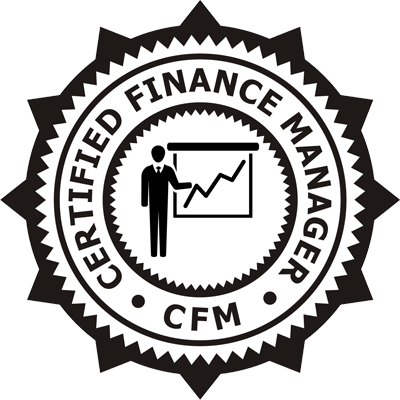Certified Finance Manager (CFM)
Exam Code: CFM-001

The CFM Certification is highly recommended and will be of great interest to entrepreneurs and business professionals who would like to get a thorough knowledge to accounting practices and theory, and to any learner who is interested in accounting or finance as a future career.
Most of us flinch when we hear terms like depreciation, cash flow, balance sheet, and (worst of all!) budgets. However, these are all important concepts to understand if you’re going to succeed in today’s business world, particularly as a supervisor. Even better, financial terms are not as scary as they seem! The Certified Finance Manager (CFM) Certification is designed to enhance the capabilities of finance professionals and also serves as a first step in the Finance Management profession.
For managers in today’s business world, it’s essential to have a working knowledge of finance. We all play a role in our organization’s financial health, whether we realize it or not. If you don’t have training or a background in finance, you may be at a disadvantage as you sit around the management table. Understanding the cycle of finance will help you figure out where you fit into your company’s financial structure, and how to keep your department out of the red. Our E-Course will help you take the Certified Finance Manager (CFM) Certification Exam with confidence.
E-Course Duration: 30 to 35 Hours




